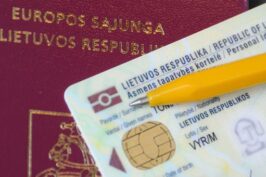- Home
- Establishment of a legal fact in a judicial procedure
Establishment of a legal fact in a judicial procedure


Establishment of a Legal Fact in a Judicial Procedure
In cases where essential documents are missing or contain discrepancies, establishing a legal fact through a judicial procedure becomes necessary. This process is crucial for individuals seeking reinstatement or acquisition of Lithuanian citizenship, as well as for those applying for a residence permit. By legally confirming family relationships, identity, or other vital circumstances, applicants can ensure that their documentation meets the requirements set by Lithuanian authorities and avoid delays in their cases.
When Documents Are Missing or Inconsistent
In certain cases, a person may lack some documents required for supporting the circumstances important in the process of reinstatement of the citizenship of Lithuania or its acquisition in other ways, as well as in the process of issuing a Residence Permit. This may include documents supporting family connections, proving that a certain person (a citizen of Lithuania) was a father, a mother, a grandmother, a grandfather, a great-grandmother, or a great-grandfather of an applicant — or proving that persons mentioned in several documents whose first names and/or surnames differ are in fact the same person.
Applying to the Court to Establish a Legal Fact
In case of lack of evidence or discrepancies between the documents, a person may apply to a court for establishing a legal fact, such as identity, kinship, or other essential data relevant for legal procedures.
Legal Support in Judicial Name and Identity Confirmation
We provide legal assistance and consulting related to the establishment of a legal fact in a judicial procedure. We prepare the necessary requests and documents to be submitted to state institutions and courts, and represent the interests of the applicant throughout the process.






























